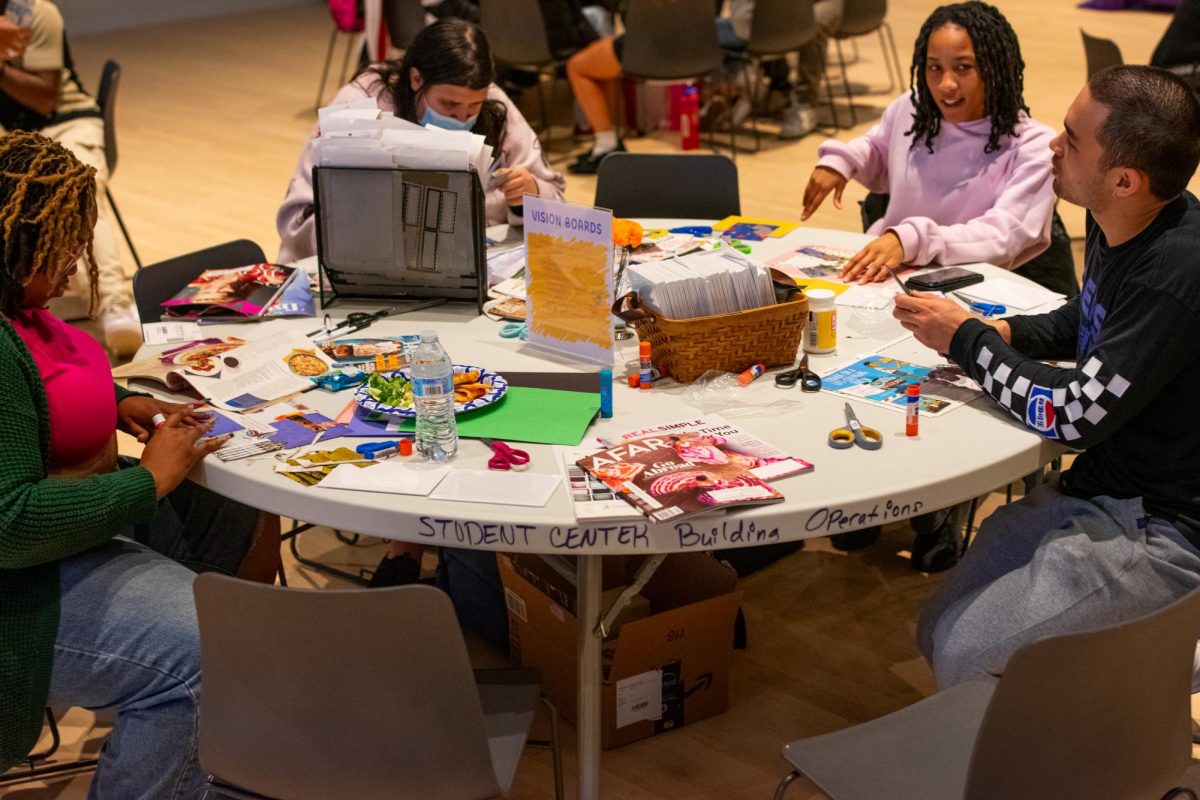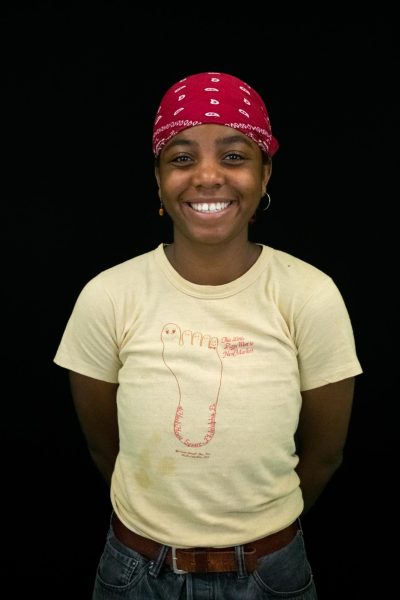Just about half (49%) of Columbia’s 5,570 students this fall identified as first-generation, a number that has been growing over the last three years, according to the Office of Institutional Effectiveness. In 2021, 30% of students were first-generation.
Columbia honored its first-generation students on Wednesday, Nov. 6 at the fourth annual First-Generation Day Celebration. The event, held on the 5th floor of the Student Center, drew over 100 students.
Rachel Horton, the director of Student Persistence and one of the organizers, emphasized that the event celebrated successes rather than just the struggles of first-generation students.
“I’m so proud,” Horton said, adding that it’s not easy to be the first in the family to graduate college.
“I think it’s imperative that it’s a celebratory event,” she said. “Sometimes people get caught up when it comes to students with marginalized identities. They focus so much on the struggles.”
The event was a collaboration between Columbia’s academic support groups such as TRIO Student Support Services, the Office of Student Persistence, the Scholars Project, Student Diversity and Inclusion, Academic Advising, International Student Support and Development, and Alumni Relations. The celebration included music, food, crafts and live performances to honor the achievements and experiences of first-generation students.
Interim President and CEO Jerry Tarrer, a first-generation student himself, delivered a welcome address by video.
First-Generation College Celebration Day is a nationally recognized event celebrated by colleges and universities across the country. The day honors the Higher Education Act of 1965, which expanded college opportunities and established federal financial aid programs to support first-generation students’ education.
“We were really excited to celebrate first-generation college students. It’s a national celebration and so we wanted to make sure we brought some of that to Columbia College Chicago,” said lead organizer Chole Naylor, the coordinator of equitable student success in Student Persistence and Scholars Project. The Scholars Project is a mentorship program for BIPOC and first-generation students that offers support and leadership opportunities to students.
Guana Colinet, a junior film and television major, heard about the event from RegFest. Although Colinet feels supported through the events and resources Columbia has provided, pressure still exists.
“I feel like being first-gen comes with a lot of pressure because you feel the need to succeed and it’s a really big opportunity so you’re grateful but at the same time there is a weight that comes with it,” Colinet said.
The event also had different “make and take” tables for students to make mini vision boards and write postcards to celebrate themselves.
While decorating a vision board with stickers, Zaneda Lockwood, a first-year creative writing major, said being first-generation is not only important today but for their family as well.
Her grandmother always told her to put her education first. “One thing my grandmother always told me was you can’t lean back on a lot of things but an education you can,” Lockwood said. “So being first-generation to me really means not only putting myself forward but also making sure that it wasn’t all in vain for my mom and my grandmother.”
For Beyrali Santiago, a sophomore theatre design major, family also plays a key role in why being first-generation is so meaningful.
“I wanna prove to my Latino community that we could graduate, we could make a difference, we could be someone,” Santiago said.
Among 10 siblings, Santiago is the first to go to college and felt celebrated at the event.
“I’ve been to a couple TRIO events, and I’ve never seen so many people come out. So it feels good to know that people feel heard and seen in a way that they want to come and gather around together.”
TRIO project advisor Elizabeth Rodriguez also said the celebration was an opportunity to foster community among students that may feel isolated on campus.
“I think there’s so many first-gen students who are also going through similar things and it’s so important to connect with your community and learn from each other,” Rodriguez said.
For some first-generation attendees, lack of supportive networks and feelings of isolation can be a challenge in college.
For Natan Mekonnen, a sophomore film and television major, feelings of isolation have been a significant challenge, they said.
“It’s been quite isolating because I haven’t really been able to find people who kind of connect to my story and share in the experience I have,” Mekonnen said.
Despite the struggles, they are appreciative of the opportunity to pursue their education at Columbia.
“I’m very grateful for that but I’m also aware that a lot of first-generation children don’t have that opportunity. A lot of first-generation children their one choice is something that makes them money and that’s consistent,” Mekonnen said.
Although Columbia offered Mickayla Khantivong the chance to pursue her passion and break from her family’s traditional path, she still faced challenges upon arriving on campus, Khantivong said.
“There’s kids who have been nurtured from a really young age to be creative and have been honing those skills since they were little,” the junior fashion major said. “It can feel very lonesome and having events like this to connect with other people who might have not done that before and hear their journeys and their personal stories and how they overcame that.”
For Greg Delgado, a senior film and television major, the event offered an opportunity to mingle with other first-generation students and find resources.
“Each person is different and has different needs, some may need help with school work, or help post-graduation and finding a job or just something as simple as paying tuition,” Delgado said.
Similar to other organizers, Horton hopes first-generation students feel both financially and personally supported at Columbia.
“So folks know we are honored to have first-generation students and we want them here and it’s not our job to fix them or to make them conform to college. It’s our job to support them,” said Horton.
Copy edited by Trinity Balboa










